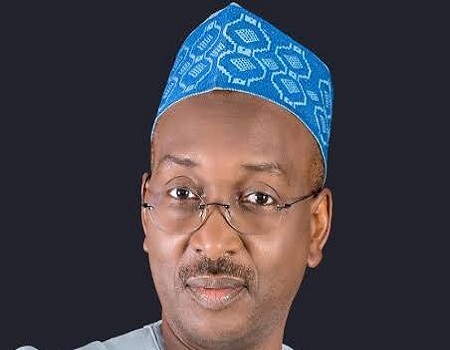Director-General of the Progressive Governors Forum (PGF), Salihu Mohammed Lukman, has said the leaders of the ruling All Progressives Congress were not in denial of challenges confronting the nation unlike the erstwhile Peoples Democratic Party (PDP).
Lukman in a statement, on Tuesday, however, expressed concern that leaders of the party were not doing enough to develop a strong mobilisation campaign that can connect citizens with all the initiatives of the government.
To change the narrative, he advocated a robust programme of reorientation in the country to sustain the envisioned change APC and its leadership are working to achieve.
“No need for the familiar debates of PDP vs APC here. The fundamental issue is the question of the extent to which APC leaders and members are responding to challenges. Are we taking responsibility? The good thing is that, in APC, leaders are not in denial of the challenges. This was not the case with PDP before 2015 and up to this moment.
“However, being members of the APC, we should be able to acknowledge too that although the slogan of the APC changes, which underlines the commitment of the party and its leadership to bring about change in the country, the programmatic details as articulated in the party’s manifesto require a mobilisation programme in order to win the support of Nigerians.
“One of the big gaps confronting the APC, which unfortunately makes it easy for opposition politicians to dent the party and its governments’ is the absence of mobilisation programme to engage Nigerians to take responsibility in their different fields of endeavours in responding to challenges facing the country. ”
According to Lukman, getting Nigerians to take responsibility in their different fields of endeavours in responding to challenges facing the country is a critical success factor in terms of producing the change envisioned by the APC and its leadership as articulated in the manifesto of the party.
“Inability of Nigerians to take responsibility through initiating appropriate actions raises questions about the sustainability of initiatives of the government. Beyond questions of sustainability, there is the issue of public awareness and the associated challenges of public support and endorsements. It is not enough for government to initiate programmes and projects as responses to challenges facing the country. Public support and endorsements will be required to make them sustainable, which is not automatic.
“Once the focus and scope of initiatives are limited to operations of government institutions, and non-governmental institutions continue with business-as-usual practices, most of the challenges facing the country will linger. For instance, take the case of insecurity, which is the most important threat to the survival of the country. As much as combative military operations against insurgency in all its manifestations – banditry, kidnappings, abductions, etc. – is fundamental to restoring order and protection of lives and property in the country, equally important is also how Nigerians across all strata of social life are being mobilised to take responsibility in restoring order and guaranteeing the security of life and property in every part of the country. How is the government working to raise awareness of Nigerians in terms of what to look out for as danger signals in our different communities? What kind of conduct by citizens, including community leaders constitute risk factors and therefore indicative of security challenges? What should be done, where and who to report to? What other initiatives should citizens take?
“One of the major challenges facing Nigeria today is that ‘self-styled saviours’ projecting themselves as leaders campaigning to win ‘a sense of belonging’ based on aggressive ‘nationalism, uncompromising religious sects, or violent urban tribes’ are springing up in every part of the country. This is partly the issue around the Nnamdi Kanu and Sunday Igboho phenomena in the South-East and South-West.
“Unfortunately, because such phenomena are allowed without any counter mobilisational strategy, they are increasingly becoming threats to political leaders. To some extent, they are also becoming models of responses to Nigeria’s challenges by ethnic and religious groups, which is dangerous.”
YOU SHOULD NOT MISS THESE HEADLINES FROM NIGERIAN TRIBUNE
True! Consuming Rotten Tomatoes May Cause Liver Cancer
CLAIM: A Facebook user claims that the consumption of rotten tomatoes, popularly known as Esa in South-West Nigeria, can cause liver cancer.Nigeria’s challenges: APC leaders not in denial like PDP ― PGF boss
Nigeria’s challenges: APC leaders not in denial like PDP ― PGF boss






